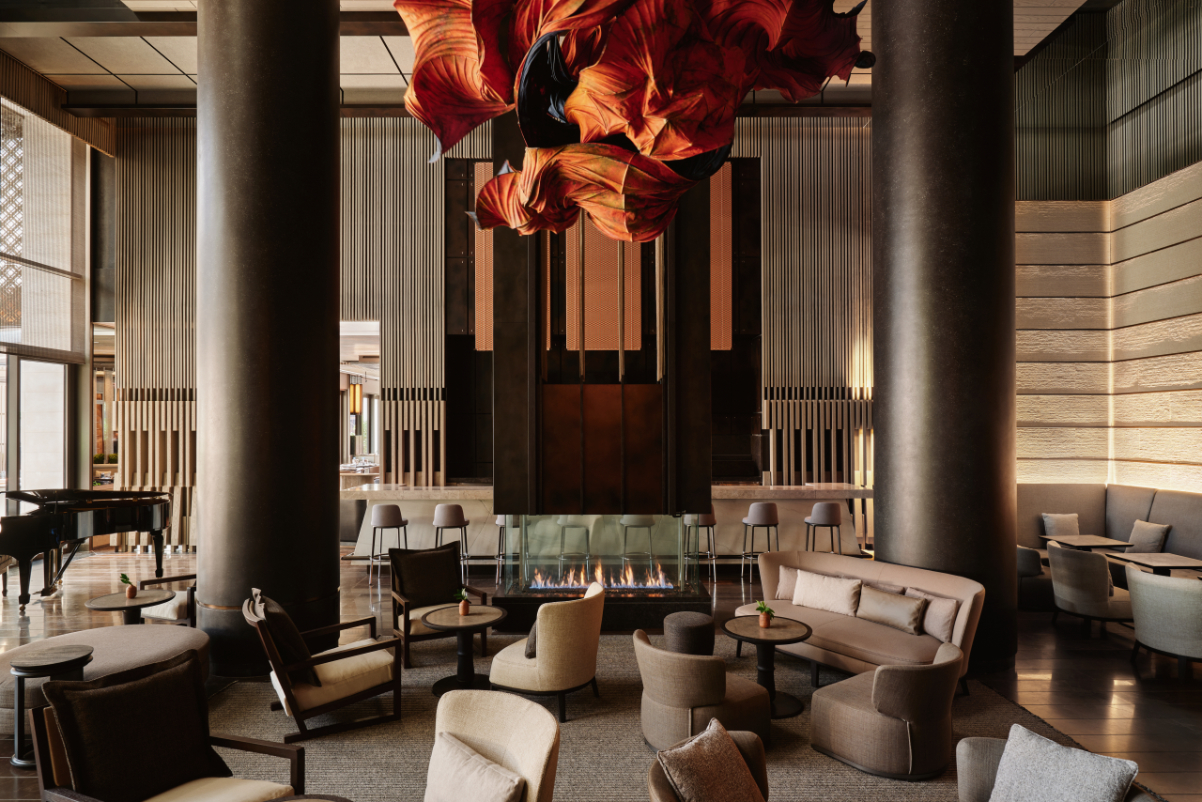Skift Take
New York and California dominated in the top "key" category with Michelin's new U.S. hotel ratings.
Michelin announced its top picks for U.S. hotels Wednesday, using its new hotel “key” system. Only a small number of hotels across seven cities made the cut.
Hotels in Atlanta, Chicago, Miami, New York, Orlando, Tampa, and Washington, D.C., were eligible, along with ones in California and Colorado.
Michelin already lists about 1,000 hotels in the U.S. as recommendations. The 124 hotels are the first in a wave of U.S. hotels to receive the higher commendation of “key” awards.
Rating hotels is new for Michelin and the “key” system mirrors its restaurant star system. One key denotes a “special” hotel, two keys are “exceptional,” and the coveted three keys are awarded to “extraordinary” establishments.
Michelin said that its goal is to evaluate hotels beyond basic amenities, placing a premium on their restaurants, design, and service. It said it is focusing on the local character, individuality, and an overall memorable guest experience.
Michelin revealed its top hotels in Paris earlier this month. It plans to reveal its picks for top luxury hotels for Spain on April 29, for Italy in early May, and for Japan and Korea in July. It eventually aims to cover key “touristic hubs” worldwide.
Three Keys: Michelin’s “extraordinary” hotels
Hotels in New York and California swept the coveted three-key category.
- The Beverly Hills Hotel, Dorchester Collection
- Post Ranch Inn
- SingleThread Inn
- Hotel Bel-Air, Dorchester Collection
- Auberge du Soleil, Auberge Resorts Collection
- Meadowood Napa Valley
- Canyon Ranch Woodside
- Crosby Street Hotel, Firmdale Hotels
- The Whitby Hotel, Firmdale Hotels
- Aman New York
- Casa Cipriani New York
Two Keys: Michelin’s “exceptional” hotels
- L’Ermitage Beverly Hills
- The Maybourne Beverly Hills
- The Peninsula Beverly Hills
- Ventana Big Sur, an Alila Resort
- Bernardus Lodge & Spa
- The Stavrand
- Montage Healdsburg
- The Madrona
- Montage Laguna Beach
- Rosewood Miramar Beach
- Milliken Creek Inn & Spa
- Four Seasons Hotel San Francisco at Embarcadero
- The Battery
- Cavallo Point Lodge
- Pendry West Hollywood
- Chateau Marmont
- North Block
- Bardessono
- Rosewood Washington, D.C.
- The Jefferson
- Mayfair House Hotel & Garden
- The Setai Miami Beach
- Faena Hotel Miami Beach
- Four Seasons Hotel at The Surf Club
- Pendry Chicago
- The Langham, Chicago
- The Peninsula Chicago
- The Fifth Avenue Hotel
- The Carlyle, A Rosewood Hotel
- The Mark Hotel
- Hotel Barrière Fouquet’s New York
- Nine Orchard
- Pendry Manhattan West
One Key: Michelin’s “special” hotels
Michelin listed the hotels receiving its one-key designation on its website.
One recipient of a “one key” rating is Riggs Washington, DC, an 1891 Romanesque Revival bank building that re-opened as a luxury hotel a few years ago.
“The Michelin recognition has a lot of influence on guest choices, and this recognition will help put Riggs on the map from an international perspective for people not familiar with the market,” said Dewayne Wright, general manager of Riggs Washington DC.
“To have the same recognition as long-revered hotels like the Hay-Adams will help sustain our team’s high motivation, too,” Wright said.

“No pay for play model”
Michelin said all of its inspectors are on staff, not freelance, and fully pay their way for meals and hotel stays.
Skift reported Tuesday that Atlanta’s tourism marketers have paid $1 million over three years to encourage Michelin to review restaurants there and to help promote the selected restaurants. Skift has previously reported that, internationally, Michelin often enters some financial deals with tourism boards to initiate market entry.
To dispel any confusion, Michelin said its partnerships with seven tourism groups, including Visit California and Visit Florida, are centered on helping destinations promote themselves as gastronomic centers of excellence and that they don’t affect their selections.
“Michelin doesn’t have a pay-for-play business model,” said Gwendal Poullennec, international director of the Michelin Guides. “Partnerships with tourism boards don’t affect assessments of restaurants or hotels. You don’t pay anything to be recognized by Michelin and don’t participate in any kind of scheme.”
A case in point: Visit Florida is in its third year of a partnership with Michelin. The state invested $150,000, and the tourism boards of Tampa, Orlando and Miami each invested $150,000, said Visit Florida CEO and President Dana Young.
Michelin’s debut of ratings in these markets, along with Visit Florida’s own video and other marketing, helped boost awareness of Florida’s culinary scene. Before, the tourism board found that 37% of Americans saw Florida as having a “unique local cruise” scene, said Young. Two years into the partnership, the percentage rose to 51%.
“The destination marketing organizations use the content of the Michelin Guide to promote their destination, such as by hosting events that announce names being recognized,” Poullennec said. “It’s a marketing program that has no impact on the selections or assessments. That is absolutely not related to what we are doing for the hotel.”
On the hotels front, some other organizations that give awards also offer consulting services to help hotels “better understand the review process.” Others charge fees to affect which places are awarded. Michelin does neither.
“You can’t do consulting and do independent assessments,” Poullennec said.
Yet some industry analysts approach the awards landscape with caution. “Michelin’s approach to selection is commercially driven, limiting potential awardees to those hotels that have agreed to their terms via their online travel agency Tablet Hotels, where they earn 10-15% commissions on bookings,” said Piers Schmidt, founder of Luxury Branding. “This inclusion factor could exclude notable hotels, such as the Corinthia London, from ever receiving a key, regardless of merit.”
Yet Michelin insists it curates which properties to include for recognition based on quality first, with the option to offer online booking a side issue.
“Michelin is spotlighting properties regardless of their resources so that the best talents can get recognition for their work, not for their marketing,” Poullennec said.
Have a confidential tip for Skift? Get in touch
Tags: future of lodging, luxury hotels, marketing, michelin, ratings, reviews
Photo credit: Aman New York, USA - Interior, Lounge

